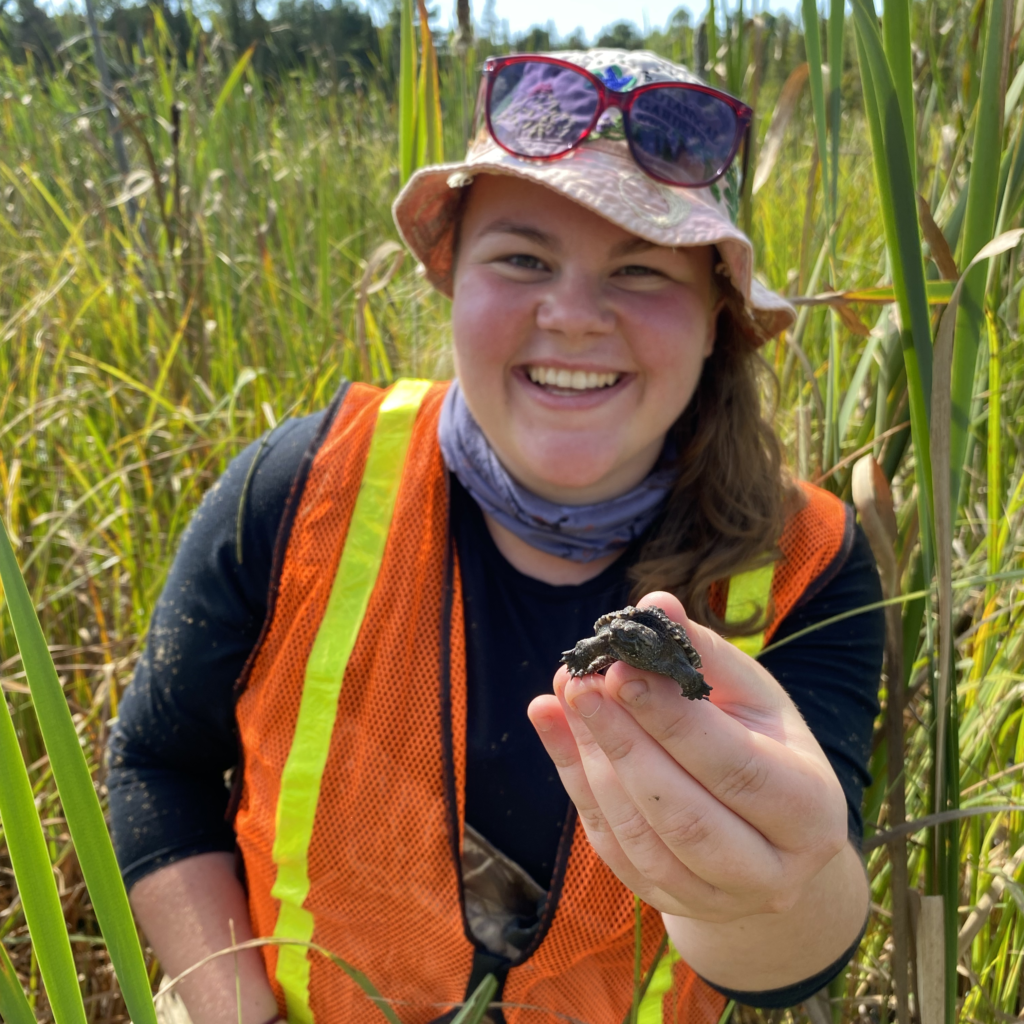Claire Kemp was awarded the 2022 RIC award for her project, Optimizing Community-Based Wildlife Monitoring: Prioritizing Indigenous Knowledge & Values.
About project
Have you ever wondered how wildlife is affected by changes to the environment? We know that complex changes are happening – but there is so much we don’t know about the cascading impacts on wildlife. In Magnetawan First Nation (MFN), community members have noticed many changes to the land and wildlife and want to know more. In partnership with MFN’s Department of Lands, Resources & Environment, we are looking at community-based wildlife monitoring that prioritizes community knowledge and values such as respect, reciprocity, and interconnectivity. By taking the time to build relationships within the community and develop research approaches collaboratively, several areas of interest were identified: non-invasive methods, biodiversity, moose, and documenting the impact of roads and railways. So, here we are – using wildlife cameras to focus on the diversity of medium to large mammals! Altogether, our team has 56 wildlife cameras out across the MFN reserve in 1km2 intervals. Getting these cameras out was no easy feat – it would not have been possible without the support of the MFN community and Lands Department. With all that hard work, the photos we get make it all worthwhile – we love being able to show people what we (and the animals!) are up. We’ve been fortunate to capture moments of many different animals including bears, moose, fishers, wolves, foxes, you name it! Using these photos, I’ll be looking at what animals were recorded, where they were, and if there’s a relationship between animal presence and the distance to the roads and railway. We are hopeful that this work will create a baseline dataset for future wildlife monitoring in the community, help create a case for future road and rail mitigation strategies, and help guide other researchers looking to collaborate with Indigenous communities in a good way.
About award recipient

Claire is a M.Sc. student in the Wildlife, Indigenous Science, Ecology (WISE) Lab at the University of Guelph, supervised by Dr. Jesse Popp. Her current research is in partnership with Magnetawan First Nation, looking at community-based wildlife monitoring and the prioritization of community values. Before graduate school, she completed her Bachelor of Environmental Studies (B.E.S.) at the University of Waterloo where she gained interdisciplinary hands-on experience through co-op, field-courses, and the completion of a senior thesis project. In addition, Claire has gained practical experience working for a variety of organizations doing botanical inventories, ecological monitoring, community outreach, and educational programming – all of which contribute to her understanding of environmental challenges and how we can address them as a society. She is particularly interested in where ecology and outreach intersect, bringing her enthusiasm for connecting with both people and nature to her work. When she’s not doing research she can be found relaxing outside, at the pottery studio, or enjoying an iced coffee